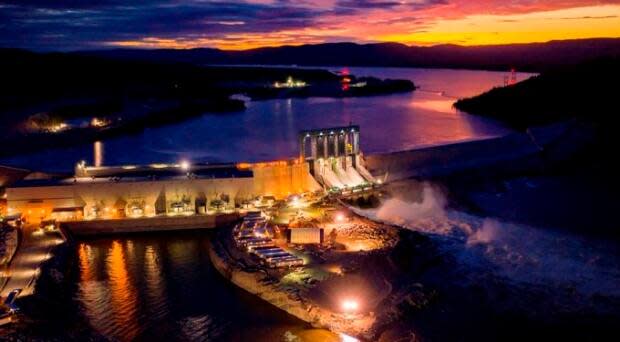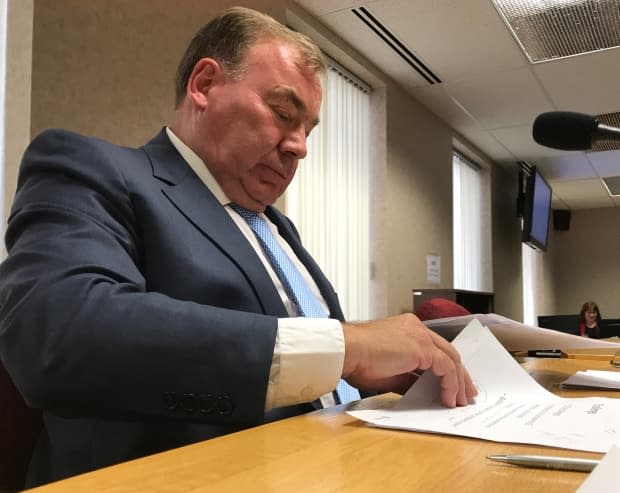Damage to Muskrat Falls transmission lines not a major setback, says Nalcor CEO

Despite significant damage over the last two months to the transmission lines that carry power from Muskrat Falls to the Strait of Belle Isle, the CEO of Newfoundland and Labrador's energy corporation says he expects the project to be operational on schedule.
The most recent February storm damaged components between Muskrat Falls and L'anse au Diable, with repairs needed on more than 1,200 towers. Repair crews have spent the month trying to address the issue.
In light of the recent spate of damage, Nalcor CEO Stan Marshall said failures early on in bringing the project fully operational were expected, and blamed a series of unusual weather events in January and February for the failures of the transmission line components.
"We've had some problems for sure, but you expect a lot of those, especially early on in the project," said Marshall. "So we're still in the process of making the whole thing operational."
Marshall attributed the damage to an unseasonably severe ice storm in Labrador last January, which left a heavy accumulation of ice on the lines between Goose Bay and Forteau.
The ice didn't initially affect the operation of the lines until a worker spotted a damaged arm on one of the towers. When crews went to assess the damage, they discovered a dozen instances of similarly bent towers.
"In Labrador what we found was that the smaller arms carrying the electrode lines were being bent in some places, and in one instance actually let go," he said.
The severity of the accumulated ice was enough to require helicopter assistance from Hydro Quebec in order to remove it from the lines.
"It's very unusual to have ice this magnitude for so long," he said.

Marshall said that it's impossible to build power lines to withstand everything. From time to time, he said, there will be failures.
"The towers themselves did not give way, so that's the first thing. It's impossible to design outside towers to withstand every possible event; the cost would be astronomical in any event."
Through an assessment, Nalcor will determine if the designs themselves were faulty, or if there was any issue in implementation, he said. If needed, added Marshall, designs will be modified.
Too early to estimate costs of repairs
Marshall says Nalcor won't know how the damage will alter the project's price tag until the corporation has completed its assessment.
"I don't think this will contribute significantly to an increased cost," said Marshall. "There might be some minor revisions made here, but it's difficult to say until we get the full engineering analysis of what things failed."
According to Marshall this is the first major issue Nalcor has encountered with the line in the three years it's been up.
The transmission system has a number of configurations, which Marshall said allows them to maintain the lines. The loss of an electrode line doesn't necessarily mean customers would be without power, he said.
Despite not being able to give any guarantees, due to what he called the ongoing challenges of COVID-19, Marshall said he's confident the Muskrat Falls project will reach full completion within the year.
"There's a clear path at this point in time," he said.
"The construction is finished, we're in an operational mode in one of the generators, we are now bringing the transmission line into operation ... so I have a great deal of confidence that by the end of the year, we'll be basically at fully operational."

